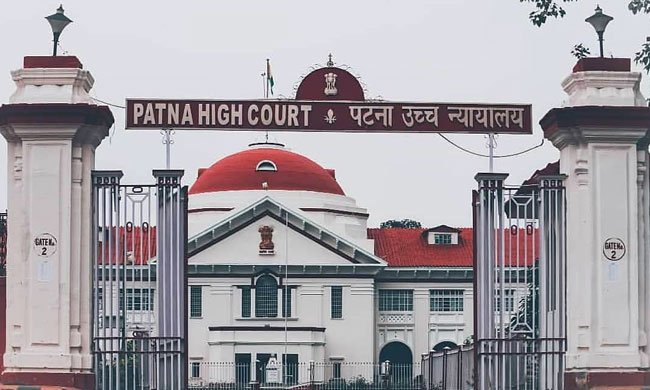FACTS OF THE CASE:
Jindal Steel and Power Ltd. (JSPL), the informant, furnished information to the Competition Commission of India (CCI), invoking Sec. 19 read with Sec. 26(1) of the Competition Act 2002, and alleged that Steal Authority of India Ltd. (SAIL), the respondent, had entered into an exclusive supply agreement with the Indian Railways for supply of rails. According to Sec. 3(4) of the Competition Act 2000, an exclusive supply agreement would be considered to be anti-competitive if it causes or is likely to cause an appreciable adverse effect on competition in India. In this case, the other rail suppliers in the industry did not have an opportunity to place their bids because no tender floated by the Respondent. This resulted in filing a complaint before the CCI for the abuse of dominant position by SAIL under Sec. 4(1), which prohibits abuse of dominant position by an enterprise or group and for entering into an anti-competitive agreement with the Indian Railways. CCI registered the information provided by JSPL and asked it to file an affidavit w.r.t. that information and directed SAIL to submit its comments within two weeks w.r.t. the information provided to CCI. SAIL made a prayer for an extension of six weeks for filing comments, which CCI found to be without merits and thus rejected. CCI found a prima facie case against the respondents. It directed the Director General (DG) (appointed under Sec. 16(1)) to investigate under Sec. 26(1), granting liberty to the respondent to file its views and comments before the DG during the investigation. SAIL challenged the correctness of this order before COMPAT on the ground of not being heard and hence a violation of natural justice (audi alteram partem). Commission made an application before COMPAT to implead it as a party to appeal and also questioned the 2 maintainability of the appeal as the direction was just for investigation and was not an appealable order under Sec. 53A. The investment by DG was stayed by the COMPAT, it rejected CCI’s plea for impleadment on the reasoning that it was neither a necessary party nor a proper party and observed that reasoning must be given for any order, direction, or decision taken. Commission went in appeal to the Supreme Court against this order of 3 COMPAT.
ISSUES BEFORE THE SUPREME COURT:
Issue 1: Right to Appeal u/s 53A(1) of the Act against direction passed by CCI u/Sec. 26(1) of the Act while forming prima facie opinion.4 The apex court observed that the “right to appeal” is a statutory right that is controlled by the provision itself and where the Act is not providing it, the Courts cannot presume that 5 right by implication. The doctrine of “Expressum facit Cesare taciturn” i.e. ‘expression precludes implication’ was applied here. It is always safer to apply plain and primary rules of construction. The first and primary rule of construction is that the intention of the legislature is to be found in the words used by the legislature itself. The Supreme Court in Union of India v. Tulsiram Patel applied this doctrine. Sec. 53A provides that a 6 7 appeal can be made only against any order, direction, or decision of the Commission referred to in Sec. 53A(1)(a), and the direction passed by CCI is a “direction simpliciter”, which is not covered by Sec. 53A and had the legislature intended to include that, it would 8 have expressly provided that, and the Language of Sec. 53B(1) would have been different. Hence the direction of the issue is not appealable. Should, this be appealable?
Issue 2: The ambit and scope of power vested with the CCI under Section 26(1) of the Act and whether the parties, including the informant or the affected party, are entitled to notice or hearing (Natural Justice), as a matter of right, at the preliminary stage of formulating an opinion as to the existence of the prima facie case?11 The apex court examined the exceptions to the principle of natural justice w.r.t. Sec. 26(1). It observed that the legislature has not imposed any duty upon the Commission to 12 issue notice or grant a hearing to any of the parties as a matter of right at the preliminary stage of forming a prima facie opinion regarding the existence of a prima facie case, it
is merely an administrative procedure and not an adjudicatory proceeding. But notice has to be issued at the time of deciding under Sec. 26(2), otherwise it can be a ground for an appeal. The court stated that the Commission should state a minimum reasoning 13 for their orders and decisions. The court also stated that CCI has the power, under Regulation 17(2), to call upon the informer or “such other person” whom it deems necessary, at any stage, for giving the required assistance or information to help CCI form a prima facie opinion. This power cannot be compared with the statutory requirement of serving notice or allowing being heard.
What is the implication of cases?
Issue 3: Whether the Commission would be a necessary or proper party in the appeal proceedings before the Tribunal?15 The court analyzed the procedure for appeal under Sec. 53B and who can file an appeal. 16 Sec. 53B has to be interpreted liberally. The court was of the view that the Commission comes under the term “any person” under Sec. 53B. COMPAT held that CCI will be a necessary party in appeal in all the cases and a proper party in the cases where the Commission has taken a Suo motu cognizance under Sec. 19. Relying on the 17 judgment of Udit Narain Singh Malpaharia v. Addl. Member, Board of Revenue, Bihar, 18 The apex court held that impleading CCI as a party to appeal is in line with the objective of the Act. As it is an expert body, its views will provide important assistance to the 19 Tribunal. This will reduce the multiplicity of litigation and would result in effective and 20 21 expeditious adjudications 22.
Issue 4: At what stage and in what manner the Commission can exercise powers vested in it under Section 33 of the Act to pass temporary restraint orders?23 The apex court held that if the Commission is satisfied that a party has committed or is about to commit an act in violation of Sec. 33, then it has the power to issue an interim order under Sec. 33, without serving any notice, temporarily restraining any party from carrying on such act, until the conclusion of such inquiry or until further orders. This power must be exercised only in compelling and exceptional circumstances when there is a very high probability that the other party would suffer irreparable and irretrievable damage, or there is definite apprehension that it would hurt competition in the market. Section 33 read with Regulation 18(2) of Regulation 24 implies that CCI can exercise this power only in the cases where it has formed prima facie opinion and directed investigation in terms of Section 26(1) of the Act. CCI 25 can pass such an order after applying its mind and being fully satisfied to that extent.26
Issue 5: Whether the Commission must record reasons while forming prima facie opinion?27 The court observed that the existing ambiguity regarding whether a judicial or a quasi-judicial body must give reasons while giving a judgment or passing an order, no more exists and has been settled down in Assistant Commissioner, C.T.D.W.C. v. Shukla and Brothers, and recording of reasons is an essential feature of dispensation of justice. 28 29 The apex court referred to Gurdial Singh Fiji v. State of Punjab wherein the court held 30 that “administrative authorities and tribunals must accord fair and proper hearing to the affected persons and record explicit reasons in support of the order made by them. Even in cases of supersession, it was held that reasons for supersession should be essentially provided in the order of the authority. Reasons are the links between the materials on which certain conclusions are based and the actual conclusions. By practice adopted in all courts and by judge-made law, the concept of reasoned judgment has become an indispensable part of the basic rule of law and in fact, is a mandatory requirement of the procedural law”. In support of this judgment a 31 reference was also made to the judgment of Donaldson LJ in Alexander Machinery (Dudley) Ltd. v. Crabtree. 32 Therefore, the Commission must record at least some rationale even in the cases of forming a prima facie view. But in the cases of directions and orders that affect the rights of the parties, the commission must pass speaking orders, and respond to all the contentions of the parties.33 It must state appropriate reasons for all the issues before passing an order under Sections 26 to 28.34
Issue 6: What directions, if any, need to be issued by the Court to ensure proper compliance concerning procedural requirements while keeping in mind the scheme of the Act and the legislative intent?35
The Court gave the following directions:
(i) All proceedings, including investigation and inquiry be completed by CCI/ DG most expeditiously, and wherever during an inquiry the CCI passes an interim order, it should pass a final order on that behalf as expeditiously as possible and on any case not later than 60 days; and is this feasible? Has this been implemented?
(ii) DG should submit the report in terms of section 26(2) of the Act within the time as directed by CCI, but in all cases not later than 45 days from the date of the directions issued under section 26(1) of the Act.36
CONCLUSION:
The Supreme Court’s judgment in this case is a welcome move and is a very important one for the jurisprudence of Indian competition laws. The Supreme Court in this landmark judgment has removed the ambiguities, and very appropriately drawn the balance, between the powers of COMPAT and the Competition Commission of India. The court not only defines the extent of the powers of CCI and COMPAT but also their limitations. The court states that one can go in appeal to COMPAT for review of an order but COMPAT cannot stop the CCI from conducting investigations into probable anti-competitive activities and the tribunal should not take up appellate proceedings at every stage. If the Commission thinks that there is a prima facies case, they can go in appeal before the COMPAT only after the investigation is over and an order has been passed in that regard. The court has also interpreted various provisions of the Act which have given rise to, or have the potential to give rise to, several disputes. The judgment has been delivered after giving full consideration to the objects and purposes of the Act. The apex court has also issued some guidelines, to ensure procedural requirements are fairly complied with while keeping in mind the scheme of the Act and the intent of the Parliament.
Explore the intricate legal battle between the Competition Commission of India (CCI) and Steel Authority of India Limited (SAIL) with Patrons Legal. Our legal team of corporate lawyers in Delhi offers a comprehensive analysis of this complex case, delving into the nuances of competition law and corporate litigation. With expertise in navigating high-stakes legal disputes, Patrons Legal provides valuable insights into the legal strategies, precedents, and implications involved. Trust us to unravel the intricacies of CCI vs SAIL and offer expert guidance on navigating similar legal challenges.








Leave a Reply